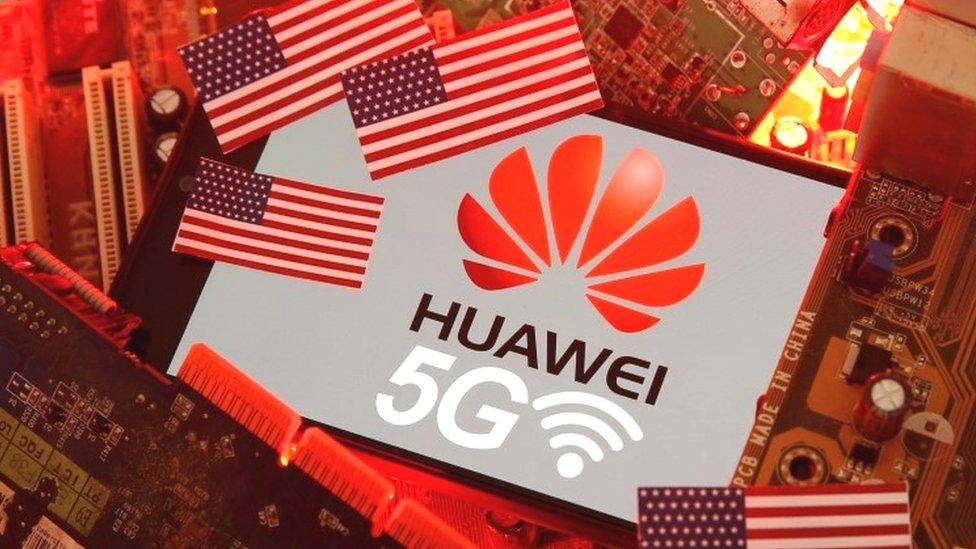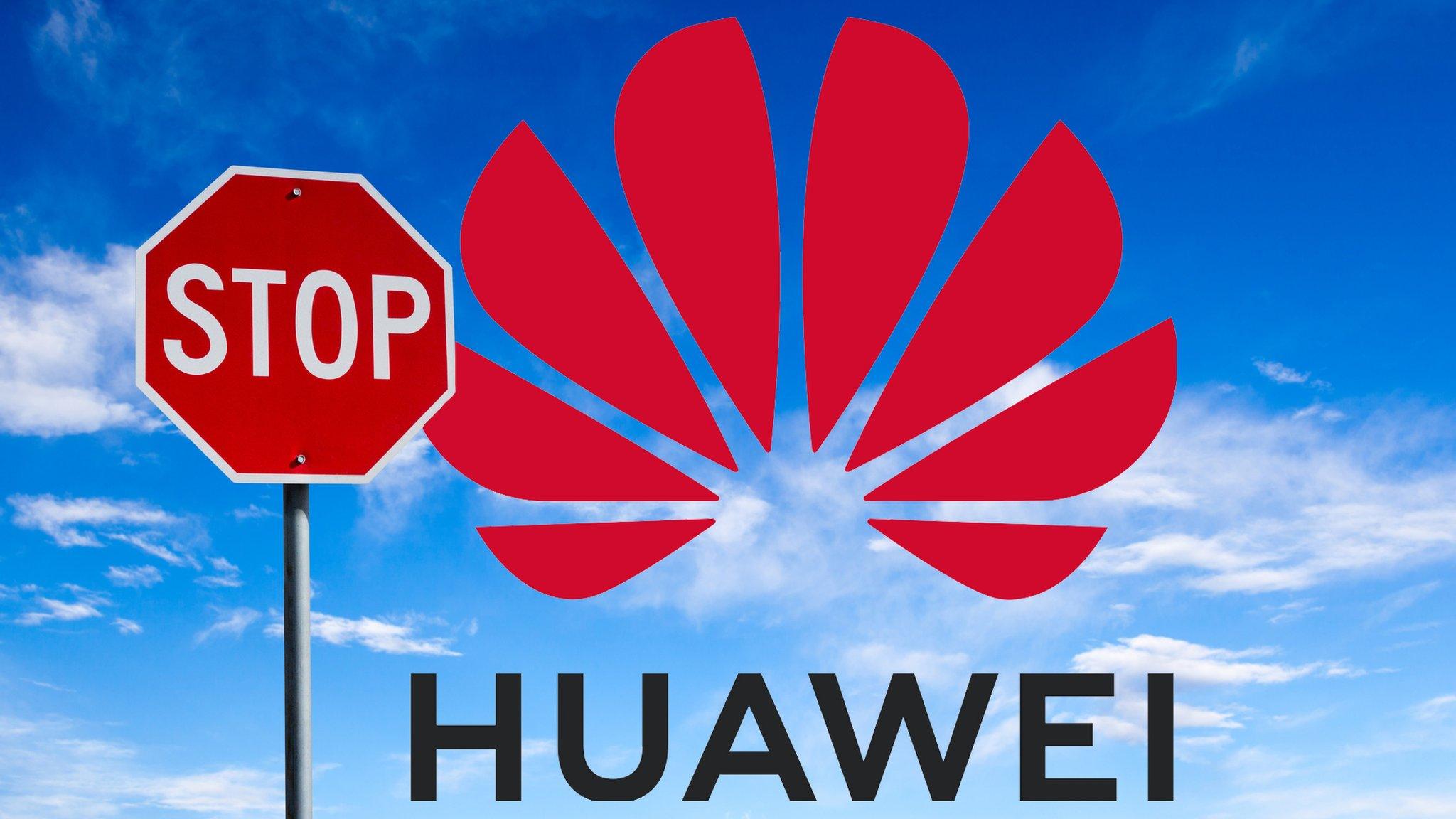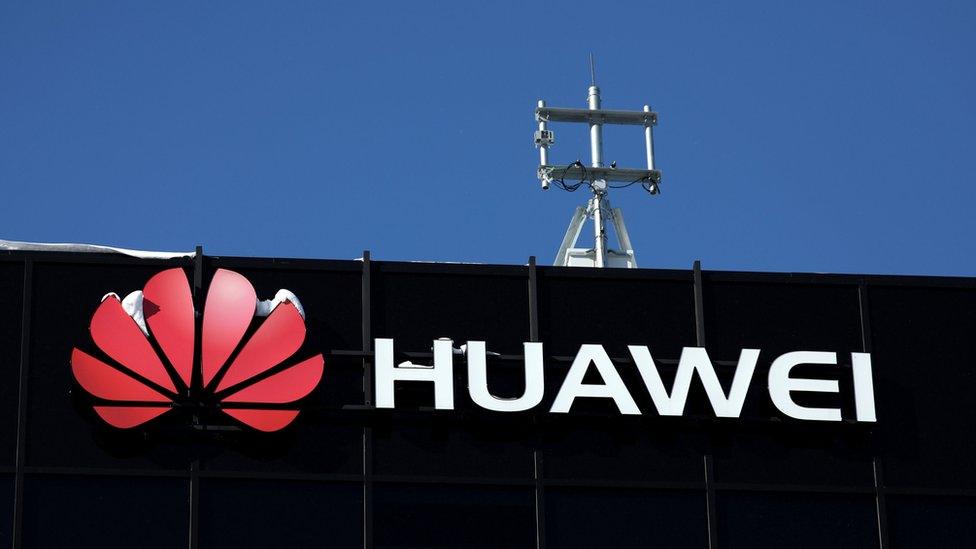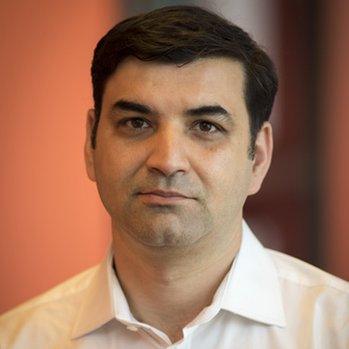Senator tells MPs Huawei puts US troops at risk
- Published

One of Huawei's leading critics, US Senator Tom Cotton, has told UK MPs that he fears China is trying to use the telecoms equipment-maker to "drive a hi-tech wedge between us".
The Republican politician was giving evidence to an inquiry by the House of Commons' Defence Select Committee into the security of 5G.
Mr Cotton added that the US, UK and other allies could team up to develop superior 5G technologies of their own.
Huawei said the claims lacked evidence.
"Today's committee concentrated on America's desire for a home-grown 5G company that can 'match' or 'beat' Huawei," said its UK chief Victor Zhang.
"It's clear that market position, rather than security concerns, is what underpins America's attack on Huawei.
"The committee was given no evidence to substantiate security allegations."
'Hackers' window'
Mr Cotton is among a group of US lawmakers pressing the UK to ban Huawei.
Prime Minister Boris Johnson announced in January that the firm would be allowed to supply radio masts and other equipment for use in the periphery of the UK's 5G networks, so long as its market share did not exceed 35% by 2023.

Senator Cotton gave evidence via video link from the US
Senator Cotton has previously suggested that Britain could lose its foreign investment "white list" status - which exempts its companies from increased US scrutiny of their foreign investments - if Downing Street does not reverse course.
The senator is also proposing legislation to delay US F-35 combat aircraft being stationed within any country that uses Huawei in its 5G networks.
Speaking to the defence committee, Mr Cotton noted that he was not speaking on behalf of the US government.
But he claimed that using Huawei in the UK infrastructure could "give PLA [China's People's Liberation Army] hackers a window into our military logistics operations", which could put US forces and American weapons systems based in England "at dangerous risk".
He added that as the US continued to build up forces in the Pacific, the case for keeping some US Air Force assets in the UK was already contested in Washington, and if Huawei was used in the UK infrastructure there would be an operational risk that would not be faced in other places.
Mr Cotton said the "scales had fallen from a lot of eyes" in the last six months when it came to China.
And he suggested that members of the G7 could work with South Korea, India and other European nations to create new telecom equipment companies of their own.
"I have no doubt that we have the talent, the productive capability, the innovative and entrepreneurial spirit to develop 5G technologies with software and hardware that will far surpass in quality, performance and price, anything that China produces," he said.
The committee also took evidence from 5G Action Now, a lobby group that advocates for the development of American technologies, and the Washington-based Hudson Institute think tank.
While Huawei said that Senator Cotton's claims were unfounded, it added that it welcomed "open and fair competition as it fosters innovation and drives down costs".
"For 20 years, we have worked hard with our customers and partners to build Britain's robust and secure 3G and 4G networks and we are now focused on delivering the 5G network to the same high standards," said Mr Zhang.
"This is fundamental to achieving the government's Gigabit broadband target by 2025."
The hearing coincided with a review of Huawei's role in the UK, which is being carried out by GCHQ's National Cyber Security Centre.
It will determine whether new US sanctions against the firm - which ban Huawei from using computer chips made or designed with US equipment - pose an unmanageable risk to British network providers' use of the firm's kit.
Additional reporting by Leo Kelion
- Published26 May 2020

- Published24 May 2020

